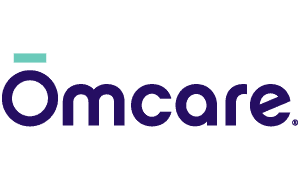Taking medications as prescribed is something that is not as easy as it sounds. This is especially the case for seniors, who may take several prescribed drugs each day. It really is vital to recognize that non-adherence can mean not taking a prescribed drug at all, or it can mean taking it but mixing up the dose or time of day to take it. The following describes what can happen if you do not take specific prescription drugs as prescribed, as well as the benefits of medication adherence to treating three common health disorders in seniors.
Lack of medication adherence in seniors with high blood pressure: Why it matters
Around 60% of all adults in the US by age 60 have high blood pressure (hypertension). This percent increases with age. Meanwhile, high blood pressure is the leading cause of strokes. Certain medications are prescribed to ensure that blood pressure remains within a normal range in adults living with chronic hypertension. In this way, a stable blood pressure is maintained, so as not to be too high or too low.
When a person skips a daily blood pressure medication, the result can be a dangerous spike in blood pressure. However – if a morning dose is taken instead at bedtime – the person could arise to use the bathroom, but then faint due to an overly-low blood pressure. This is because it can take several hours for an oral blood pressure drug to work as intended.
Medical researchers have determined that adults who are non-adherent to prescribed drugs to control hypertension are nearly six times more likely to have a stroke than those who are adherent. Since strokes often cause permanent disability in older-aged adults, adhering to blood pressure drugs can be imperative to future overall health and well-being.
The benefits of medication adherence for managing diabetes-type 2
At least 29% of all adults aged 65 and older are living with Diabetes-Type 2, per the Centers for Disease Control. While insulin is the standard treatment for Diabetes-Type 1, prescribed pills of antihyperglycemic drugs are the standard treatment for Diabetes-Type 2. These daily antihyperglycemic medications help to maintain the blood sugar level within normal range. If not taken each day (or not taken at all), the blood sugar level can remain too high or even increase.
Uncontrolled or poorly-controlled Diabetes-Type 2 can boost the likelihood of developing many of the common diabetes complications. These complications include:
- A type of nerve pain in the limbs called peripheral neuropathy
- Heart disease, resulting in an increased risk of heart attacks
- Blindness due to diabetic retinopathy
- Transient Ischemic Attacks (TIAs)
- Kidney damage
Benefits of medication adherence for controlling cholesterol level
High cholesterol increases the risk for a heart attack. According to the American Heart Association, the main reason is that too much cholesterol in the bloodstream causes fatty deposits (plaques) to form in the artery walls. In turn, the plaques can break off, travel in the bloodstream toward the heart as a clot, and then block blood-flow to the heart.
The FDA approved the first statin drug to lower cholesterol in 1987. Since that time, statins have been prescribed by doctors to many millions of adults to lower cholesterol. This is because taking a daily statin drug has been shown to tremendously lower heart attack risk in adults with chronically-high cholesterol. However, statin medication needs to be taken daily for life after beginning its use. Otherwise, cholesterol level is likely to spike back up.
Heart disease is the leading cause of death in adults in the US, and especially in senior-aged adults. Therefore, medication adherence to a prescribed statin drug by an adult diagnosed with high cholesterol can be life-saving.
How smart technology can increase medication adherence in seniors
Having a family member or friend remind a senior-aged person to take daily prescribed medications every day can be effective at increasing medication adherence to prescribed drugs. However, this is not a realistic solution in most cases, as even a family member or friend can forget to tell the senior-aged person every day to take the prescribed medication. Fortunately, there now are apps and other mobile devices that enable users to set reminders.
Meanwhile, voice-activated technology gadgets can also provide a medication reminder. While not specifically designed for seniors, these can be used by senior-aged adults. More recently, home-based smart devices have been developed that provide medication reminders. Notably, this can enable the user to be reminded each day to take a specific prescription medication at a specific time of day. Since these reminders can enable senior-aged adults to take daily medications at the right dose and at the right time of day, they can significantly increase medication adherence in seniors.
The Ōmcare Home Health Hub® is an all-in-one platform that is designed specifically for seniors and provides medication alerts while actually storing and dispensing the medication in pre-packaged pouches from the pharmacy, making right med, right time, right person a concern of the past.

